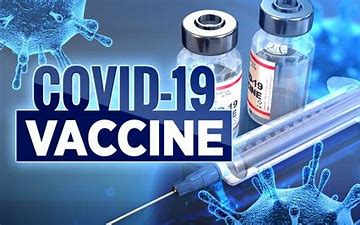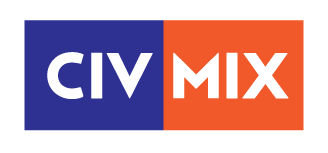 Needless to say, the COVID-19 vaccine is making a difference in the fight against COVID-19 but the dialogue surrounding vaccines has been rife with controversy. Part of the challenge is in today’s ever-changing world where even one word can make a difference in what is reported and repeated. In a world of social media where one person’s perspective can go viral faster than ever and an overwhelming 24-hour news cycle, it is a constant battle against misinformation and disinformation. When it comes to an individual’s health the stakes are much higher and we need to be mindful about what we say and how we respond.
Needless to say, the COVID-19 vaccine is making a difference in the fight against COVID-19 but the dialogue surrounding vaccines has been rife with controversy. Part of the challenge is in today’s ever-changing world where even one word can make a difference in what is reported and repeated. In a world of social media where one person’s perspective can go viral faster than ever and an overwhelming 24-hour news cycle, it is a constant battle against misinformation and disinformation. When it comes to an individual’s health the stakes are much higher and we need to be mindful about what we say and how we respond.
Complicating the process as well is when the conversation turns to vaccine mandates which in turn causes concerns for those who are wary of vaccination in general and who have a mistrust of the healthcare system.
This past week, a Food and Drug Administration (FDA) panel commented publicly after much discussion about a third booster dose for the general public. This is not to be confused with the booster dose for the immunocompromised which is now available for those who meet strict criteria and that amounts to as many as 1 million people nationally. Instead, it speaks to the other 178 million people who are already immunized with one of the three approved vaccines in the United States (Pfizer/Moderna/JnJ). It is important to read beyond the headlines and remember that this does not mean that the booster is unnecessary or unsafe, but it is a matter of timing and prioritization based on risk. It is important to consider which populations are most impacted by COVID-19 and breakthrough cases similar to how decisions were made based on the severity of the impacts of H1N1 on children compared to other age groups. In the case of COVID-19, the elderly (65 and older) and immunocompromised people are most at risk for severe illness, and therefore they are the priority for boosters. As many will recall, when the vaccine was first released the rollout and timing was similar.
There was confusion because the panel which consists of several respected professionals deviated from what was being discussed by the President. The FDA panel recommended limiting the booster dose at this time to those over 65 and those who are at “risk of severe illness,” while the President mentioned the date of September 20 for boosters for all. That risk of severe illness is a bit vague and definitely needs more detail which is why it is important to not react but observe the meetings this week, on Wednesday and Thursday, of the ACIP which is the Advisory Committee on Immunization Practices. The ACIP meeting is surely one to watch as multiple disciplines of learned providers will pour through the information provided by Pfizer to provide a recommendation on booster doses. They could very likely approve what was approved last week or make a modified recommendation. I encourage you to take a look at their website which lists upcoming meetings as well as provides a list of the providers and professional medical associations involved. It is impressive.
While it can be confusing to see one message from the President who seems to be trying to be proactive in ensuring that all take the opportunity to get a booster when it is available and another that is the FDA panel recommendation, I see it as a sign of independence of the FDA experts and that is always a good thing to keep the medical decisions separate from ones that might be perceived as political.
Note – At this time only Pfizer is being considered for boosters. Moderna and JnJ also have data that is being reviewed however that determination is a month or so away.
There are many individuals anxious to receive the booster dose, just as many are anxious for children under the age of 12 to receive an initial dose. It is laudable and a good sign that people are showing confidence in the vaccine and its ability the protect from severe illness that they want a booster dose. Keep in mind the fact that the reason a booster is being considered is that over time immunity protection will start to wane; however, it does not mean that it has dropped completely or that you are without protection. Try not to compare the booster to the annual flu vaccine which is normally about 40-50% effective in protection. Keep in mind Pfizer and Moderna have been effective in up to 95% which is remarkable. That is not to say that you should pass up the 3rd dose when it is available, however, it should reinforce that if you continue safe practices such as wearing a mask indoors and social distancing, you are in a much better position to protect yourself and others.
Yes, I strongly encourage a booster dose for individuals and hope that the headlines on the FDA panel decision do not dissuade people from getting the booster if it becomes available at a later date. It is important to remember the caveat that the FDA panel recommended limiting the booster doses at this time, which may change down the road. I will receive the booster dose when it is my turn because I believe it is the best preventative step to protect myself, my family, my friends, and those who I work with or meet. I am fully aware that not everyone subscribes to that thinking however as we are seeing, a growing number do after seeing the devastating impacts of this disease, and I am hopeful that more people will receive the vaccine in due time and the numbers will grow as others become more confident.
In the meantime, it is important to stick to the facts and for that, I strongly recommend following the CDC for guidance which you can find at this link, and of course, for those who have a medical professional – visit or talk to them!


Recent Comments